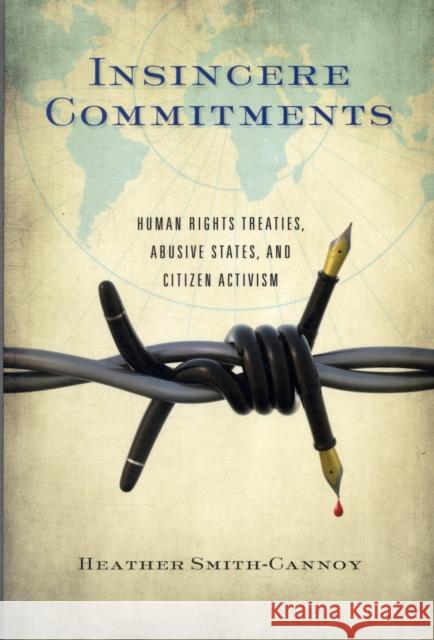Insincere Commitments: Human Rights Treaties, Abusive States, and Citizen Activism » książka
Insincere Commitments: Human Rights Treaties, Abusive States, and Citizen Activism
ISBN-13: 9781589018877 / Angielski / Miękka / 2012 / 222 str.
Paradoxically, many governments that persistently violate human rights have also ratified international human rights treaties that empower their citizens to file grievances against them at the United Nations. Therefore, citizens in rights-repressing regimes find themselves with the potentially invaluable opportunity to challenge their government's abuses. Why would rights-violating governments ratify these treaties and thus afford their citizens this right? Can the mechanisms provided in these treaties actually help promote positive changes in human rights?Insincere Commitments uses both quantitative and qualitative analysis to examine the factors contributing to commitment and compliance among post-Soviet states such as Slovakia, Hungary, Kyrgyzstan, and Tajikistan. Heather Smith-Cannoy argues that governments ratify these treaties insincerely in response to domestic economic pressures. Signing the treaties is a way to at least temporarily keep critics of their human rights record at bay while they secure international economic assistance or more favorable trade terms. However, she finds that through the specific protocols in the treaties that grant individuals the right to petition the UN, even the most insincere state commitments to human rights can give previously powerless individuals--and the nongovernmental and intergovernmental organizations that partner with them--an important opportunity that they would otherwise not have to challenge patterns of government repression on the global stage. This insightful book will be of interest to human rights scholars, students, and practitioners, as well as anyone interested in the UN, international relations, treaties, and governance.











